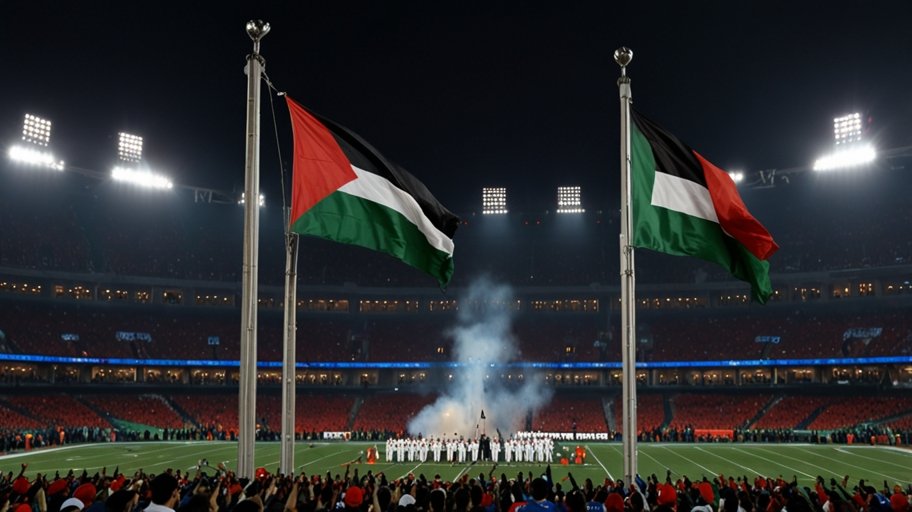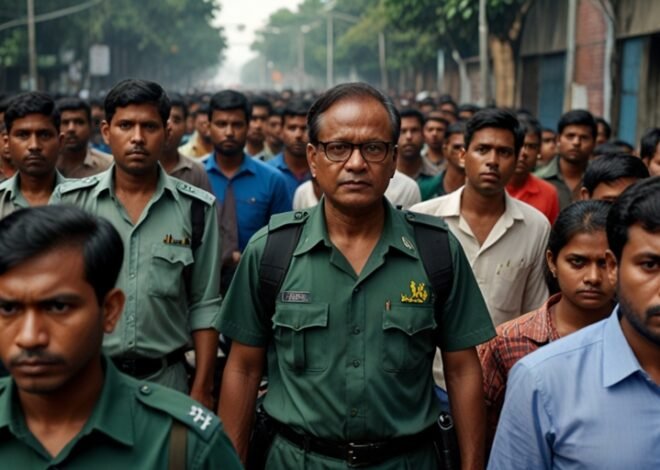
Super Bowl Halftime Show Sparks Controversy With Gaza And Sudan Flags
The Super Bowl LIX halftime show went differently as artists included the flags of Gaza and Sudan during the show, causing plenty of the viewers to either give kudos or voice out displeasure through comments from all over the globe. This situation has been the cause of a hot debate that is wide-ranging among folks who are arguing about whether politics is or is not the appropriate theme for the tents where artists should display their talents or create a positive atmosphere. The grand event’s planners maintained a low profile by not releasing their motives behind such a decision, thus making it open for many to speculate on it.
The performance was fantastic, festooned with music by a group of legendary artists, which was the first thing that came to my mind when I saw it; I thought that maybe it was the standard of demonstration and exhibition. Still, some point past the show, the big screens showed the Gaza and Sudan flags alongside a moment of silence that seemed to have developed by ending for a mere several seconds. Such an unprecedented shift of tides left millions of viewers in temptation and triggered an instantaneous reaction on all popular social media networks, with hashtags regarding the case reaching the top trending topics on a global scale, even within minutes.
Those in favor of the artists who perform such a stunt have heaped plaudits on them for alerting the world to the seemingly endless humanitarian crises that are creating dreadful situations in the two countries. International human rights groups have found many terrible conditions in the two areas, including civilians who are suffering from hunger, lapses in the health care system, and, of course, the ongoing battles. Advocates of the position that the Super Bowl halftime show was, in a way, the only immeasurable global avenue to disseminate the information and, at the same time, give the audience a chance to act on it and involve themselves in such aid.
However, the critics claim that the artists and the organizers have made the traditional non-political event a political one. Many spectators were not satisfied with what they felt was an improper mixing of musical entertainment and the complicated geopolitical issue. NFL honchos, being surprised by what they saw on the stage, were trying to sort it out in a rush, and the first reports suggested that the flags were not in the original performance plan.
The controversy has refueled the debates about the role of athletes and performers in addressing social and political issues. It has become a norm in the last few years that sports stars and celebrities are making use of their platforms to advocate for various causes, such as racial justice and climate change. It is a commendable promotion of politics before a huge audience by the entertainer or sports figure, which explains the huge growth.
The political leaders hailing from different nations have expressed their opinions about the event, and the reactions have been predominantly based on the ideology of the responders. The supporters of Palestine and Sudan are the ones who have appreciated the step, while others have blamed it as an oversimplified explanation of tough geopolitical issues. The government has released a statement that, on the one hand, supports freedom of speech and, on the other hand, shows the significance of preserving the names of sports events by saying that.
As the situation calms down after this controversial musical performance, the question remains about the potential impacts on the artists and the NFL as well as the entire sports and entertainment. The ni investors and donors who finance advertisements and other marketing activities during the Super Bowl are taking note of what people are saying to know if the brands will have any damage. Besides, the incident raised the issue of a requirement for more precise and clearer regulations of the political statements declared by the participants during the significant and most-watched sporting events organized in the United States.
A look ahead, according to industry insiders, hints that this happening might greatly alter the strategizing and execution of halftime shows and other high-profile entertainment segments. These steps may lead to the probable rise of observation and approval processes for performance content, and the artists’ ability to freely speak controversially or out of the blue might be lowered. Yet, the event managed to spotlight the crises in Gaza and Sudan globally which is an undeniable indication of sport and entertainment as influential tools in the shaping of the public talk on international issues.


